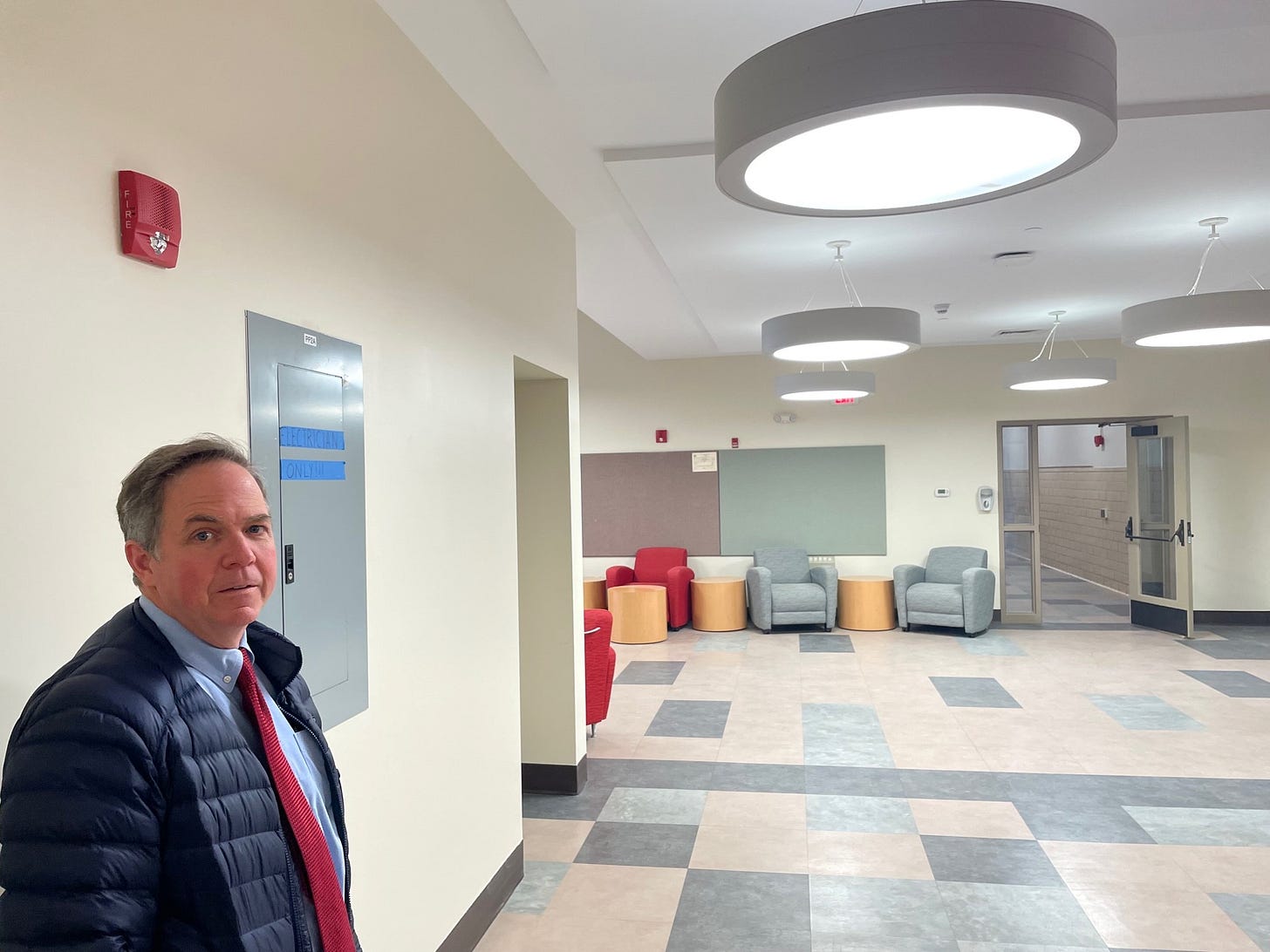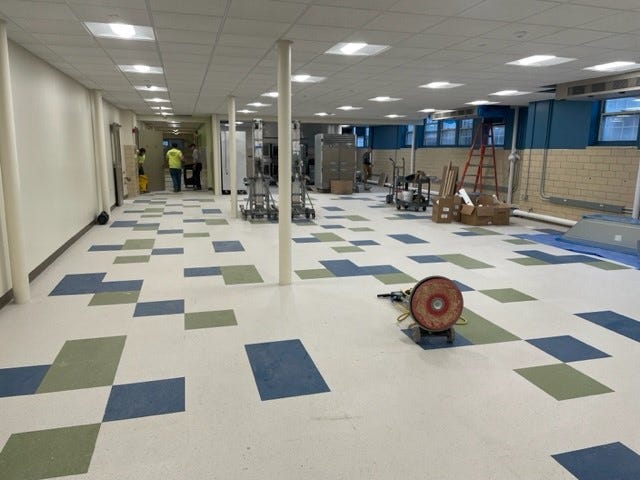Bridgewater State's on-Cape ambitions contract
Which means Cape Cod Collaborative, crucial but not understood, has a new home
Before COVID, with fanfare, Bridgewater State University created a Cape Cod campus at Yarmouth’s defunct Macarthur Elementary School along Route 28 in South Yarmouth, making a multi-million-dollar investment in a building that closed in 2014.
The goal: Four-year diplomas without having to cross the bridges.
That remains the goal, but Bridgewater State has been forced to pull way back.
BSU’s site is now transforming into the new home of Cape Cod Collaborative, which is investing another $4.5 million on top of Bridgewater’s $3 million to create what will be a handsome, spacious home for an important public education program – that few people know about or understand.
Bridgewater State’s gamble was that they could attract a big student body from local high school graduates. That didn’t pan out, though President Fred Clark is clear that the school is not leaving the site entirely, focusing on building evening and weekend classes while the Collaborative holds court weekdays.
What happened?
Of many reasons and nuances, including COVID, among the most important was described by a local educator:
“For this generation, kids who want to go to college don’t want to stay on the sandbar. As a matter of fact, this generation doesn’t want to stay on the sandbar, period.”
Paul Hilton, who runs the Cape Cod Collaborative and has been there 14 years, conjures supporting demographics:
“There’s been a 45-percent decrease in kids here since 2000,” he says, ticking off public schools that have closed; five in the town of Barnstable alone, a couple in Yarmouth, Dennis, and so on. That list includes four schools shuttered at the military base.
So not only is there an exodus, there are far fewer young adults even facing the choice.
That has not stopped Cape Cod Collaborative from pursuing its mission, to provide day programs for public school students facing challenges — fragile children, those with special needs, students better served apart from conventional classrooms though often with hopes to return. The Collaborative is “owned” by the public schools, as Hilton puts it, often serving 40 to 60 students at a time, middle and high school. Beyond 30 teachers and counselors, it also runs a bus system; the drivers on many of the big yellows (for Nauset and Monomoy among others) are among 265 Collaborative employees.
The Collaborative is not a secret, but neither is it well understood. And its role, to keep students in the community who might otherwise need much more expensive, private, off-Cape support (paid by tax dollars), is not well appreciated —beyond school committees and administrators.
For many years, the Wing School in Sandwich has been a hub and focus, but the town sold the building. So when Bridgewater State’s expansion faltered, that created an opening in Yarmouth. Hilton and his board signed a memorandum with the town and Bridgewater, then bonded $3 million, committed another $1.2-to-$1.5 million in reserves, and launched a full-tilt renovation of the old school to complete what Bridgewater started.
From powerplant to classrooms, cafeteria to offices and study areas, exercise niches and time-out corners, this is an amazing facelift (though not on the scale of a huge Nauset High School reno that will kick off in a few months, or Cape Cod Tech’s rehab). The expectation is that 40 to 60 students will be in class, doors opening for a summer session in July.
Touring the building, stepping past a score of workmen, Hilton says the goal is in sight:
“This will be a much more respectful environment for our students, and our program.”
BSU President Clark inherited expansion plans when he became president in 2015. With almost 500 students from the Cape already at the university’s main campus in Bridgewater, Clark says that from the get-go there was a “handshake agreement” with Cape Cod Community College that they wouldn’t tussle over shrinking freshmen and sophomore classes; Bridgewater Cape Cod would focus on the “upper two years, (bachelor) degree completion,” while CCCC is about the first two. That further reduced his potential student body, adding to the growing realization that “we just couldn’t build out the school, there weren’t enough programs to justify another infusion of capital (beyond $3 million already invested).”
His hope is to attract a student body of a couple hundred, focused mainly on professional development for in-service educators, virtual as much as in person.
“Everything went quiet and the lights went off during the pandemic,” he acknowledges. “We want an active, vibrant building, we don’t want that parking lot vacant during the day. So the Collaborative will be there then, we’ll be there at night.
“The headline here isn’t, ‘Bridgewater is leaving,’” Clark insists. “The headline is, ‘Bridgewater is bringing in a partner.’”
For doings elsewhere along Route 28 in Yarmouth, see Cape Cod's ground zero ribbon
Haven’t subscribed yet? To keep seeing a Voice (a cool trick), please support this local expression:







Thanks. Great article